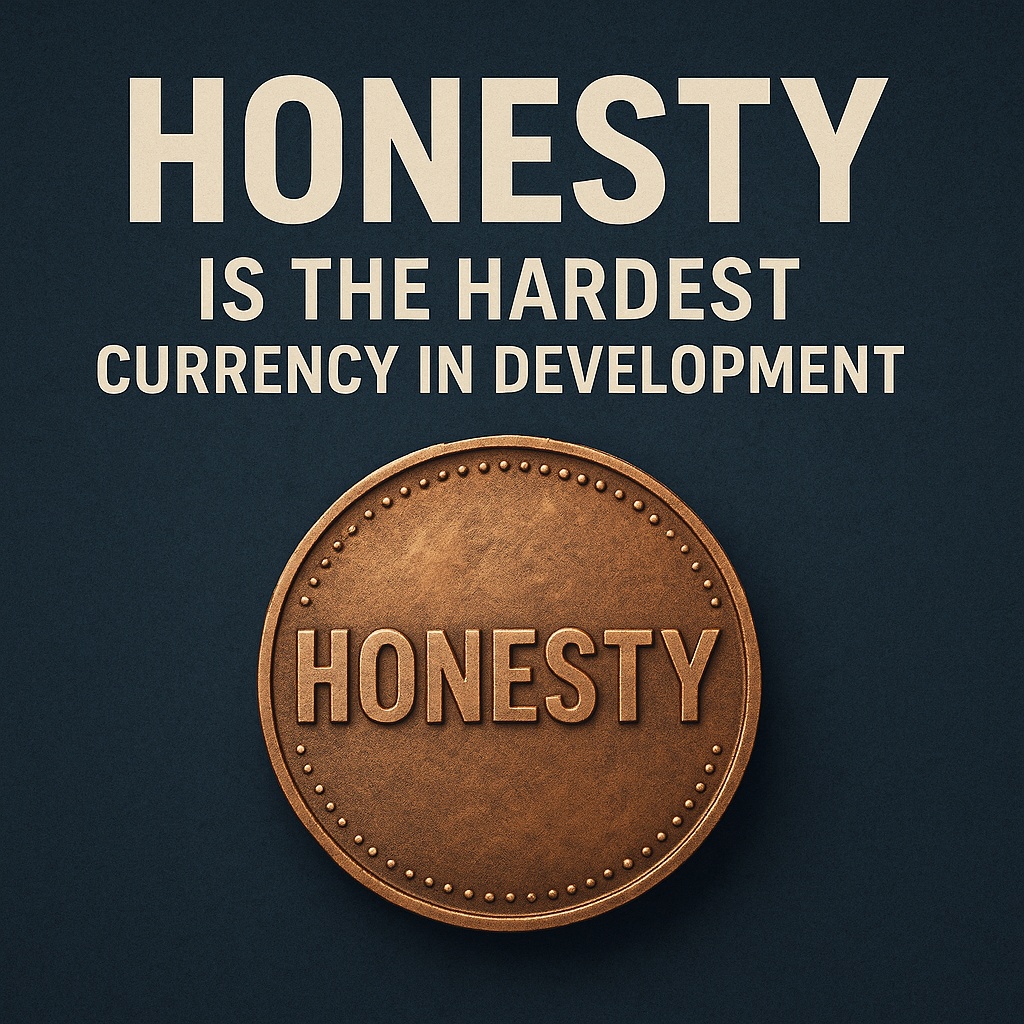A company’s true ability to succeed in transformation is measured by its honesty and realism.
How well do we truly understand our own processes, data, people – and the organization’s real maturity and competence ? before starting any development programs and projects.
Too often, business development happens too late, too small, and too technically, without ever stepping back to see the bigger picture. Goals like “better customer satisfaction” or “more digital orders” remain isolated slogans. Beneath them, there’s rarely a financial logic or a clear link to business value.

Leadership does not emerge from implementing new IT tools.
It comes from honesty, courage, and the ability to take a holistic view – from the willingness to build a bridge from the present to the future, not to buy it “conveniently” from the outside. (That path never leads to real success)
The Real Leadership of Development
Successful companies don’t build massive transformation programs.
They build agile, interconnected change initiatives directly anchored to business reality.
Each program should be able to answer three questions:
- Is this change relevant?
- Does it create value now – or later in near future?
- Is the organization’s maturity sufficient for this stage?
This requires a new kind of mindset – not just change management, but “what is the change” thinking:
What is actually changing in everyday work, for whom, and why?
Ownership Is What Makes Change Real
Real change doesn’t come from project schedules or communication plans –
nor even from leadership, if actions don’t take root in the business and ownership isn’t shared.
Change begins only when people stop and ask:
- What do we truly want to develop?
- Why does it matter?
- How will this change the business – not just tools or workflows?
Only then does external support become valuable – not because someone “delivers change,”
but because the organization already has a shared direction to strengthen.
When Real Change Comes Too Late
When value isn’t understood and critical questions aren’t asked, the result is redundancy negotiations (layoffs looming) – not change.
They are a symptom of development that was led reactively, not genuinely.
“The strongest organisation’s of the future are those, those that honestly understand how they create value now, next and in the future – and develop it before it’s too late” ( PathfinderERP 2025)
1 Comment
Why ERP Projects Fail – and What the Operating Model Enablement Venn Reveals - · 08/12/2025 at 14:06
[…] Pathfinder´s blog related honesty Honesty Is the Hardest Currency in Development? related What is actually changing in everyday work, for whom, and […]